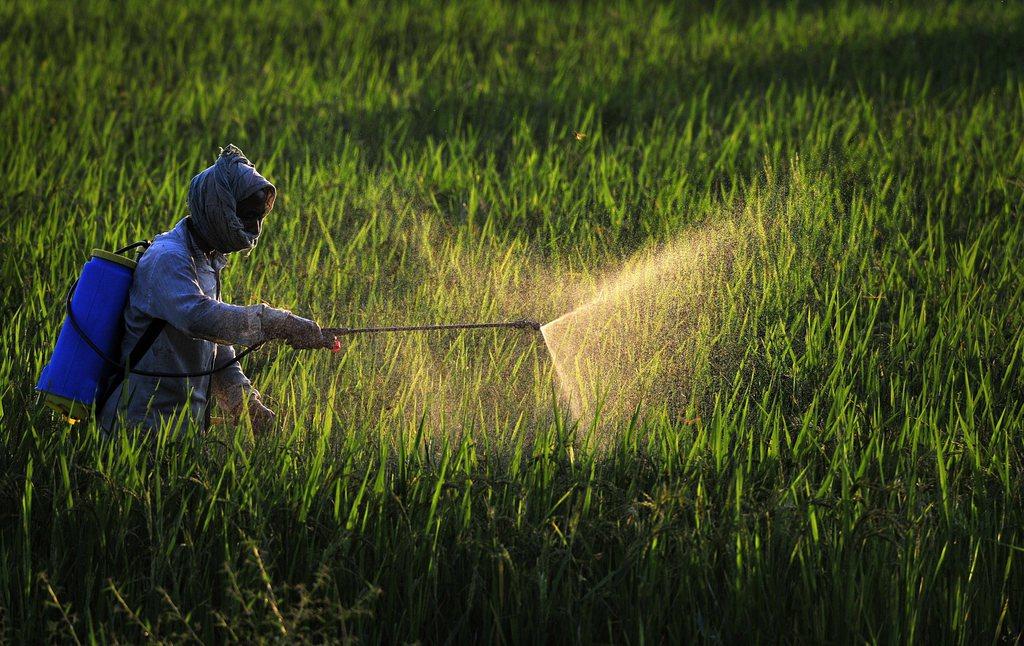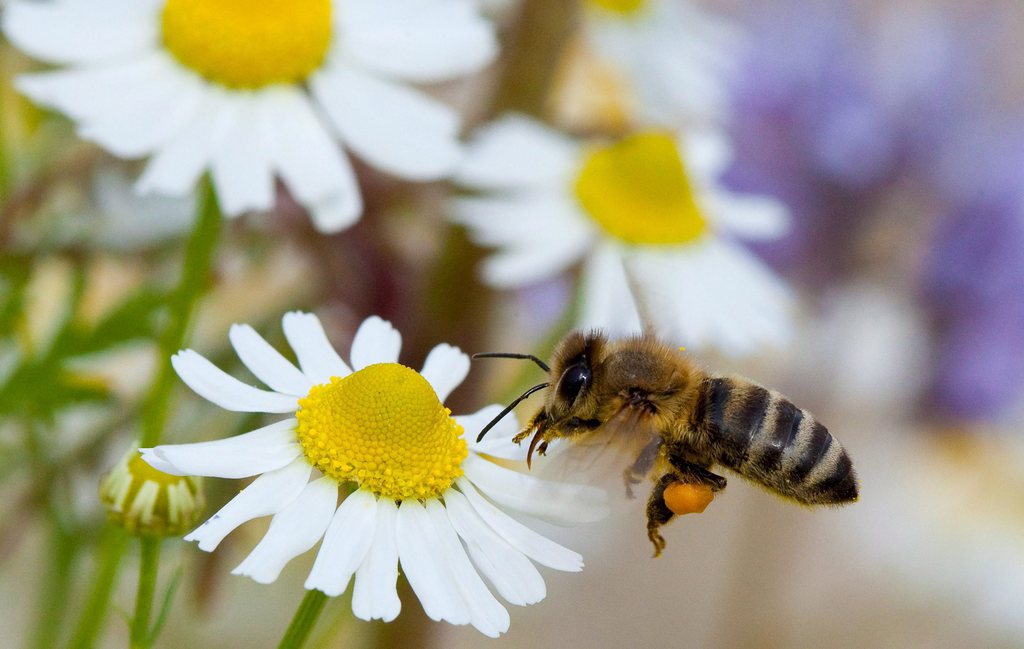Reduced access to pesticides can prevent suicides

The use of pesticides to commit suicide presents an unexpected risk to pesticide companies who could potentially face restrictions on the sale of their product. Reducing accessibility could help minimise the risk for all concerned.
In 2008, Sri Lanka delivered an unexpected blow to the pesticide industry. The country’s Pesticides Technical Advisory Committee withdrew certain pesticides such as “paraquat”, “fenthion” and “dimethoate” from the market. However, unlike previous pesticide restrictions, this decision was not based on toxicity to the environment and people but on evidence that these chemicals were being used by Sri Lankans to kill themselves.
The World Health Organisation’s (WHO) first-ever global report on suicide preventionExternal link that was published in September this year, draws attention to the scale of the pesticide suicide problem. The WHO report estimates that pesticides alone are responsible for around 30% of global suicide cases, which would amount to over 240,000 people in 2012 alone. This is particularly prevalent in low and middle-income countries, where a large proportion of the rural population is engaged in small-scale agriculture.
Should the pesticide companies, like Switzerland’s Syngenta, be more accountable given that their products are being used in this manner?
“It is difficult question and the same as asking if pharmaceutical companies should be involved if there is death caused by medication and drugs,” says Vanda Scott of the International Association for Suicide Prevention.
Despite organising training programmes for farmers on the safe handling of agricultural chemicals, pesticide companies seem reluctant to address what they regard as an unintentional use of their product.
“It is essential to differentiate between accidental and deliberate ingestion of pesticides for self-harm. Pesticides are safe and effective when instructions are followed for their intended use,” a spokesperson for Syngenta, told swissinfo.ch.
Suicide prevention groups and researchers working on preventing suicides are aware of the delicate situation the pesticide companies are in.
“Nobody likes a product that is associated with causing deaths. Pesticide companies are looking at ways to address the issue but at the same time are obliged to sell it,” Lakshmi Vijayakumar, founder of Sneha, a suicide prevention group in India, told swissinfo.ch.
Many feel that pesticide companies should play a more active role in preventing the misuse of their product.
“It is good if they are aware and alert to this issue and can say that this is not what pesticides should be used for,” says Alexandra Fleischmann of the WHO’s Department of Mental Health and Substance Dependence.
Companies now recognise that while they may not be directly responsible for the misuse of their product, they can play a role in reducing access to pesticides.
“Reduced access to crop protection products – keeping them locked with limited access – helps avoid many poisonings and deaths,” acknowledges Utz Klages, spokesperson for Bayer Cropscience.
Syngenta also recognised the need to work with researchers and organisations to ensure secure storage of pesticides.
“Syngenta can’t solve this problem alone, which is why for more than five years, we have worked with the likes of the WHO and the International Association for Suicide Prevention (IASP), to support practical suicide prevention programs, which address important areas such as mental health and secure storage,” Richard Brown of Syngenta’s Regulatory and Stewardship department told swissinfo.ch.
Safe storage
In 2007, leading researchers in suicide prevention gathered at a Syngenta-funded WHO meeting in Thailand to discuss solutions to the pesticide suicide problem. One of the main outcomes of the workshop was to initiate research studies on the efficacy of secure storage lockers for pesticides in rural Asia. The objective of focussing on pesticide storage solutions was to ensure that pesticides are not readily accessible to persons in a state of emotional distress.
With this in mind, India was chosen as one of the test countries along with Sri Lanka and China for assessing if safe storage boxes could serve as a deterrent. Consuming pesticides is one of the leading means by which Indians commit suicide and is second only to hanging.
Almost 15% out of the 135,445 suicide cases (Almost 260,000 cases according to WHO figures) recorded by the government in 2012 have been attributed to pesticide self-poisoning, bringing the tally to over 20,000 Indians a year. However, the stigma surrounding suicide, the politicisation of farmer suicides and the illegality of suicidal acts means that cases are underreported in the country.
The concept of community storage lockers was tested for the first time in 2010 in two villages in the state of Tamil Nadu in southern India.
“We chose villages that grow flowers because floriculture requires pesticide application every 15 days making the amount and frequency of pesticide use quite high in these areas,” says Vijayakumar who led the study.
Initially, the villages were reluctant to use the storage lockers, as it meant making trips between the lockers and their fields. However, the attraction of a secure storage area and the time saved by avoiding regular trips to the pesticide shop won the villages over.
“Initially the uptake was low with only 40% for the communal lockers, but right now they are 100% occupied and we are wondering if we need to build more lockers,” reveals Vijayakumar.
The community storage lockers were found to be very successful in reducing the numbers of pesticide suicides in the two trial villages. After their introduction, the number of pesticide suicides dropped from 26 cases to a mere five within a period of 18 months.
Despite the small sample of trial villages, Vijayakumar believes the pesticide lockers have potential in the semi-arid zones of Maharashtra, Andhra Pradesh, Chhattisgarh and Karnataka where almost 60% of farmer suicides and pesticide suicides occur.
However, she also believes that banning some types of toxic pesticides would have a greater impact than storage lockers. In Sri Lanka, for example, restrictions on the import and sales of WHO Class I toxicity pesticides in 1995 and endosulfan in 1998, coincided with a decrease in suicides. The country saw almost 20,000 fewer suicides in the decade after the pesticide restrictions (1996-2005) compared to the decade before (1986-1995).
Whether it is safe storage or removing them from the market, ”restricting access to pesticide holds great potential as a means to reduce grim suicide statistics, both from an impact and practical point of view,” according to the WHO suicide prevention report. Unlike other means like hanging, pills or firearms, it easier to identify vulnerable groups and regulate access.
“We know that many of these suicide attempts are in the heat of the moment and impulsive,” says Melissa Pearson of the University of Edinburgh, who is currently working on a pesticide safe storage project in Sri Lanka. “Previous studies in India, China and Sri Lanka have shown that there is not that strong a will to die that is maybe seen in other places with high suicide rates.”
As far as safe storage of pesticides is concerned, all eyes are on Pearson’s Sri Lankan trial of safe storage boxes – the largest of its kind – that began in 2010 and covers 162 villages. The results of the trial are expected in 2016 and along with data from studies in India and China, should provide enough statistical evidence to assess the effectiveness of pesticide storage boxes.

In compliance with the JTI standards
More: SWI swissinfo.ch certified by the Journalism Trust Initiative




You can find an overview of ongoing debates with our journalists here. Please join us!
If you want to start a conversation about a topic raised in this article or want to report factual errors, email us at english@swissinfo.ch.